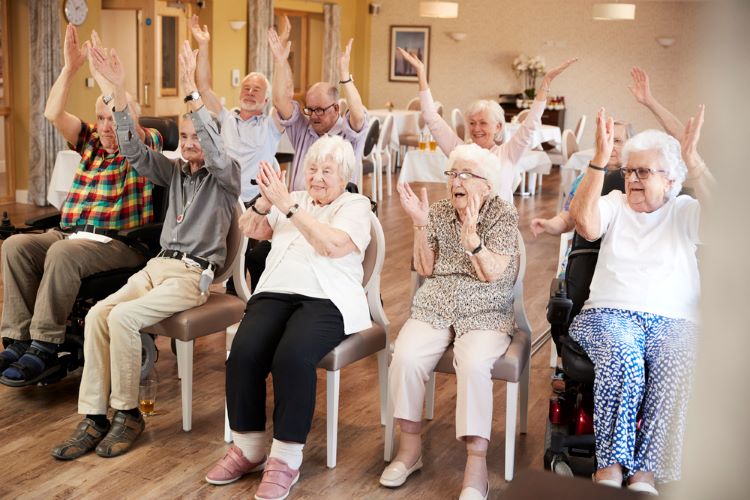Fall is an important time to focus on the health and wellbeing of older adults. There are many different factors that can affect the way we age and there are choices we can make which can go a long way towards promoting healthy aging. We’re never too old to adopt new healthful habits, and research has found that even making minor lifestyle changes can lead to a longer and higher quality of life.
Getting active and moving helps improve strength and flexibility, which can help improve balance and coordination. This helps seniors remain mobile and independent for longer, and can also help prevent falls, which affect one in four older adults each year. Exercise can also prevent or delay diseases such as diabetes, heart disease, and osteoporosis.
Joining a dance class, teaming up with a workout partner, or getting outside for some fresh air and a walk can help you stay active while having fun. A care manager can help you find activities that fit your needs and limitations and can help you find activities and classes in your area.
Eating well and staying hydrated not only helps you feel and look better, but it also helps your body fight illness, as well as improves mood and fights off situational depression. As we get older, our nutritional needs change due to changes in physical activity, metabolism, bone, and muscle mass. Increasing protein intake has been shown to be beneficial for maintaining muscle and preventing weakness as well as reducing fractures among the elderly. In aging adults, there may be a change in their sense of thirst, and medications and health conditions may make it so that they do not get enough water, which might lead to dehydration, causing symptoms like confusion, tiredness, lightheadedness, low blood pressure, and disorientation. Over time, this may lead to poor concentration, memory issues, weakness, urinary tract infections, kidney problems, and constipation.
Staying on top of your health may become more difficult in your later years. Checkups and preventive screenings give your doctor a chance to find symptoms early when they can be more easily treated and sometimes cured. Conditions like diabetes or high blood pressure may not have early symptoms so these frequent checks can help your doctor spot the signs of these illnesses early. A doctor will also be able to give recommendations for lifestyle, fitness, diet, stress, or sleep.
Fall prevention is crucial for avoiding serious injuries and hospital stays that plague many older adults. Research shows that understanding risk factors and integrating fall prevention into a senior’s daily routine and can go a long way at preventing life-threatening injuries for seniors.
It can be difficult to implement health changes alone. Our experienced care management team helps seniors every day make changes to increase their independence, mobility, and improve their outlook on life. Please give us a call at 610-667-2838 or email us at CareManagement@waverlyheights.org to find out how we can help you and your aging loved ones.

